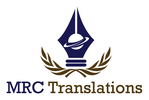 Have you ever wished to have more hours in a day? By organizing your activities effectively, you’ll get more things done each day, reducing stress and improving your performance at work. Here are some tips to help you make the most of your time. 1. Understand your Priorities Before you start working every day, make a list of the most urgent tasks you have to deal with. Positive procrastination involves postponing unimportant tasks, and this is something you should practice, since these tasks tend to consume much your time. You should always prioritize your activities and focus on those that really matter. Learn to say no to other commitments. Sometimes it’s the only way to avoid becoming overloaded with work. 2. Deal with very small tasks immediately Even though this may seem to contradict the first tip, if you have a very small task that should take less than 5 minutes, it is often better to deal with it immediately. It is not worthwhile writing it down on your calendar, reading your note on the calendar the day after, and postponing the task every time you have other priorities to deal with. Just get rid of it. 3. Learn How to Delegate Tasks We often try to do more tasks than we should, which causes stress and may lead to burnout. Delegation is part of being a leader, and it doesn’t mean you have less responsibility. Learn how to delegate effectively considering the skills of your reports and you will certainly achieve more. 4. Set Realistic Deadlines Consider the tasks you have to carry out and set realistic deadlines for each one of them. Make sure to avoid overcommitment. It is better to overestimate how long it will take to complete a task rather than underestimate it. 5. Stop Procrastinating Procrastination is very detrimental to productivity, so you should watch out for it. If you notice you are procrastinating, try to understand why. Are you tired? Is the task challenging? Do you lack the resources to do your work? If you understand what is behind procrastination, you will be in a better position to act appropriately and overcome it. 6. Don’t check your email all the time It’s tempting to check your mail every 5 minutes, but this is a bad habit. Chances are that most of your emails are useless and do not add any real value to your work. If possible, check your email just twice or three times a day. This should save you some precious time. 7. Get Out of the Habit of Multitasking Multitasking may seem like a good idea to get things done more quickly, but it backfires. The human brain isn’t really capable of multitasking: what it is actually doing is switchtasking quickly, which is more exhausting and less effective than finishing one thing and then taking care of the other. Multitasking hinders productivity and may even hurt your brain, so keep your focus on one thing at a time. 8. Watch Out for Signs of Stress If you don’t work at a sustainable pace, sooner or later you will experience stress, which will affect your productivity. Therefore, try not to work too long or too hard. There is wide evidence that this can ruin your health and productivity. 9. Take a Break Research has shown that taking regular brakes increases productivity. When you relax, you will come back with more energy and achieve more than if you work non-stop. Spend some time with your family, take a walk, do some stretches, practice yoga or meditation. Do whatever works best for you. 10. Track your time By monitoring your time for just a few days or weeks, you can gain valuable insights. Try to download some time-tracking app or software for your mobile device or PC. You don’t need anything fancy—there is free software that should be enough for your purposes. Knowing exactly how you use your time every week will open your mind about time wasters and opportunities to become more productive. Which of these tips do you already use and which are you willing to try? Do you have any tips to add to these?
0 Comments
Your comment will be posted after it is approved.
Leave a Reply. |
Details
MATHEUS R. CHAUDI am a Certified English to Portuguese Translator with extensive experience in translation, proofreading, editing, subtitling, and quality assurance. ArchivesCategories |

 RSS Feed
RSS Feed



